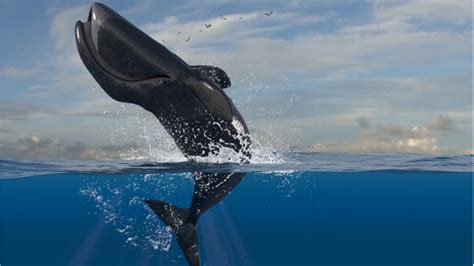The lifespan of whales has long been a subject of fascination and research within the marine biology community. As the largest animals to have ever existed on Earth, whales have evolved unique physiological and behavioral adaptations that enable them to thrive in their aquatic environment. Understanding the lifespan of whales is crucial for conservation efforts, as it provides insights into their population dynamics, migration patterns, and overall health. In this article, we will delve into the fascinating world of whale lifespan facts, exploring the various factors that influence their longevity and the latest research findings in this field.
Key Points
- The average lifespan of whales varies significantly across different species, ranging from 40 to 90 years or more.
- Blue whales, the largest animal on Earth, can live up to 80-90 years, while the minke whale, the smallest baleen whale, may live for around 50-60 years.
- Whale lifespan is influenced by a combination of genetic, environmental, and anthropogenic factors, including pollution, climate change, and hunting.
- Recent studies have shown that whales may experience menopause, a phenomenon rarely observed in the animal kingdom, which could have significant implications for our understanding of their social behavior and population dynamics.
- Conservation efforts aimed at protecting whale populations and their habitats are essential for ensuring the long-term survival of these magnificent creatures.
Species-Specific Lifespan Variations

Different whale species exhibit distinct lifespan variations, reflecting their unique evolutionary histories, ecological niches, and adaptations to their environments. For example, the bowhead whale, found in the Arctic and sub-Arctic waters, is estimated to live for around 211 years, making it one of the longest-living vertebrates on the planet. In contrast, the sperm whale, which inhabits tropical and temperate waters, may live for around 70 years. These variations highlight the complexity and diversity of whale biology, underscoring the need for species-specific conservation strategies.
Factors Influencing Whale Lifespan
A range of factors contributes to the lifespan of whales, including genetic predisposition, environmental conditions, and human activities. Genetic factors, such as telomere length and genetic mutations, can influence an individual whale’s longevity. Environmental factors, including ocean pollution, climate change, and prey availability, can also impact whale lifespan. Additionally, human activities, such as hunting, entanglement in fishing gear, and ship strikes, pose significant threats to whale populations and can affect their lifespan.
| Species | Average Lifespan (years) | Maximum Lifespan (years) |
|---|---|---|
| Blue whale | 50-60 | 80-90 |
| Fin whale | 45-55 | 70-80 |
| Humpback whale | 40-50 | 60-70 |
| Minke whale | 30-40 | 50-60 |

Conservation Implications

The study of whale lifespan has significant implications for conservation efforts. By understanding the factors that influence whale longevity, we can develop targeted strategies to protect these animals and their habitats. For example, reducing pollution and mitigating the impacts of climate change can help to promote healthy whale populations. Additionally, implementing effective management practices, such as regulating hunting and protecting critical habitats, can help to ensure the long-term survival of whale species.
Future Research Directions
Despite significant advances in our understanding of whale lifespan, there is still much to be learned. Future research should focus on exploring the complex relationships between whale lifespan, behavior, and ecology, as well as the impacts of human activities on whale populations. By continuing to study these fascinating creatures, we can gain a deeper appreciation for their biology and ecology, ultimately informing effective conservation strategies to protect these incredible animals.
What is the average lifespan of a blue whale?
+The average lifespan of a blue whale is estimated to be around 50-60 years, although some individuals may live up to 80-90 years.
What factors influence the lifespan of whales?
+A range of factors contributes to the lifespan of whales, including genetic predisposition, environmental conditions, and human activities such as hunting, entanglement in fishing gear, and ship strikes.
Why is it important to study whale lifespan?
+Studying whale lifespan is crucial for conservation efforts, as it provides insights into their population dynamics, migration patterns, and overall health, ultimately informing effective strategies to protect these incredible creatures.



